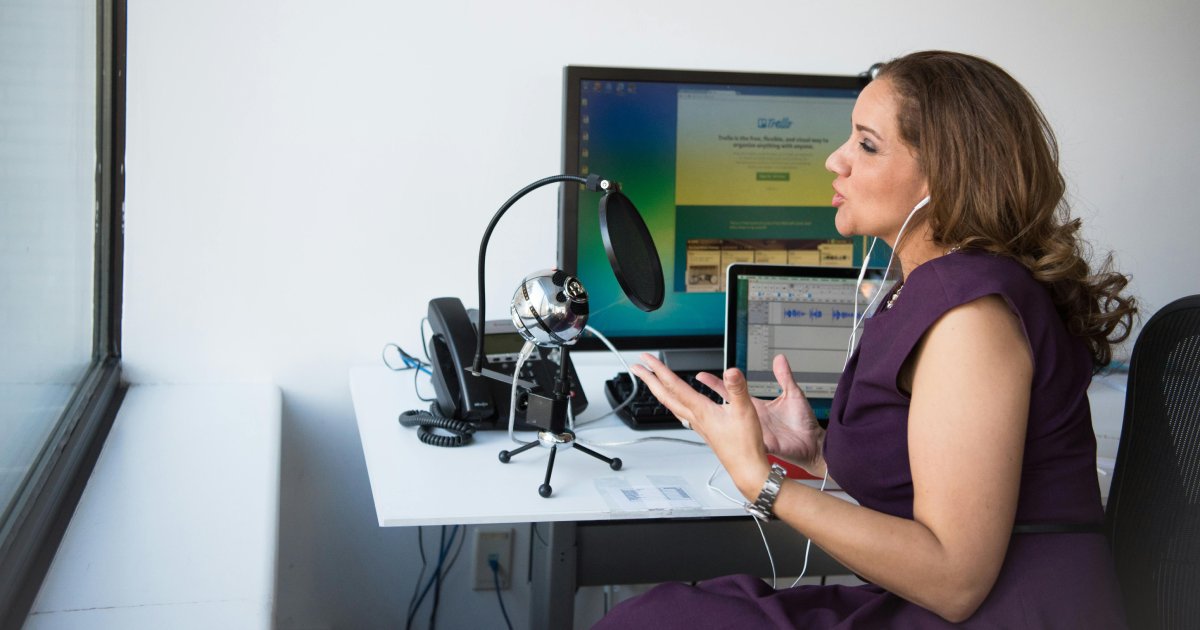Podcasts Use Licensing to Turn Up the Volume

By Mark Seavy
Merchandise is increasingly becoming a part of the marketing mix for podcasts. But are fans buying it?
That’s the lingering question for the licensing industry a year after podcasts made a splash at Licensing Expo.
Amazon-owned podcast studio Wondery signed a deal with Retail Monster, Goliath Games (board games), and Thames & Cosmos (STEM toys). And Striker Entertainment served as an advisor to Realm, which creates original fiction podcasts and audiobooks like “Bookburners” and “Bullet Catchers.”
But since then, while podcast merchandise is widely available, the selection for licensed brands has been smaller despite a market that was estimated at $30.7 billion in 2024 and forecast to reach $131.1 billion by 2030, according to Grand View Research.
There are 4.5 million podcasts registered globally, including 2.8 million on Apple Podcasts, (up from 2.2 million 2021), according to research firm Social Sheperd. Apple Podcasts command a 37% share of the U.S. market, followed by Spotify at 28%. North America has a 38% share of the global podcast market and is projected to grow 19% annually between 2025 and 2030, according to Grand View Research. About 70% of U.S. consumers have listened to a podcast at least once (up from 55% in 2020), with 66% of 12- to 34-year-olds listening to podcasts, according to Statista.
Despite growth both in the number of podcasts and episodes (106 million as of April, an increase from 52 million in 2021), even the more popular shows have room for further expansion before licensing comes into play, industry executives said. There are top podcasts like those by Joe Rogan and Alex Cooper’s “Call Her Daddy,” which have a broad range of merchandise, but thousands that do not.
Indeed, while podcast-related merchandise is available, much of it can only be purchased through the shows or networks’ websites with only a small amount in retail stores. Wondery, for example, has a shop carrying licensee Culturefly’s collector’s box and Rocklove’s charm bracelet tied to the true crime podcast “Morbid,” which has 744 episodes and was developed by autopsy technician Alaina Urquhart and Ash Kelley.
eCommerce retailer Podswag, meanwhile, sells a variety of merchandise, including bikini bottoms and rash guard shirts promoting comedian Scott Aukerman’s weekly comedy podcast “Comedy Bang Bang,” which has 910 episodes. And then there is the “Smartless” podcast from actors Jason Bateman, Will Arnett, and Sean Hayes, which offers flipflops, towels, and swimsuits.
“There is no right or wrong time to start creating merch. Some podcasters do it early in their show’s life, others wait until it’s popular,” podcast hosting platform Castos explained in a recent post. “While podcast merchandise is one way to monetize your show, it’s unlikely to make you rich. In fact, it will never come close to other revenue streams like advertising or donations. Fans don’t buy a t-shirt because they’re running low on clothes. They buy it because they love being part of the podcast. Podcast merchandise is about community, not revenue.”
This merchandise is being deployed to extend a format that is popular with categories that might not otherwise lend themselves to consumer products, like news and politics. And more podcasts are also expanding to add video content on platforms like YouTube and TikTok. For example, Spotify has been providing videos with podcasts since 2019. Much of this content doesn’t require full production and can be uploaded in “bits” to supplement audio content, said Rachel Corbett, Network Director of Nova Podcasts at Nova Entertainment and Founder of PodSchool.
The goal for expansion into consumer products and video content, industry executives said, is to extend podcasting beyond the traditional $25-per-thousand-downloads model.
“Forward-thinking podcasters realize that their dedicated audience, though perhaps small, carries immense value,” Matt Medeiros, editor of The Podcast Setup blog, told Podnews. “When you’ve built genuine trust with listeners, you can command premium rates from sponsors who understand they are reaching the decision makers, the buyers, the most valuable listeners—not just casual listeners.”




